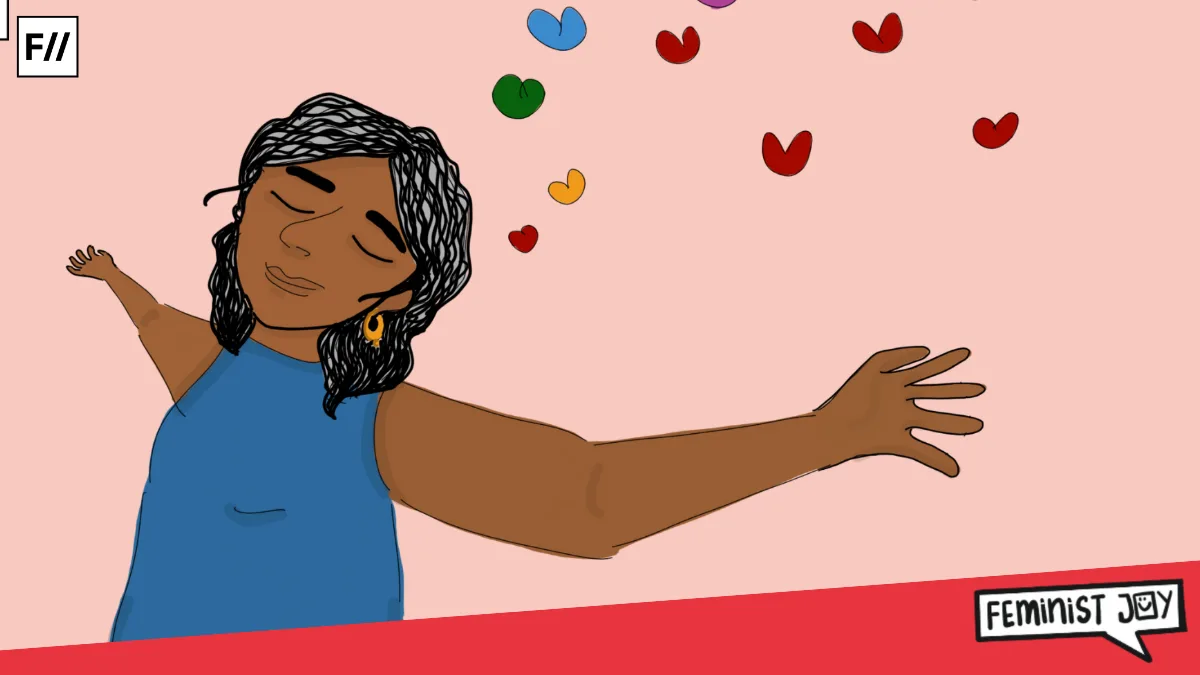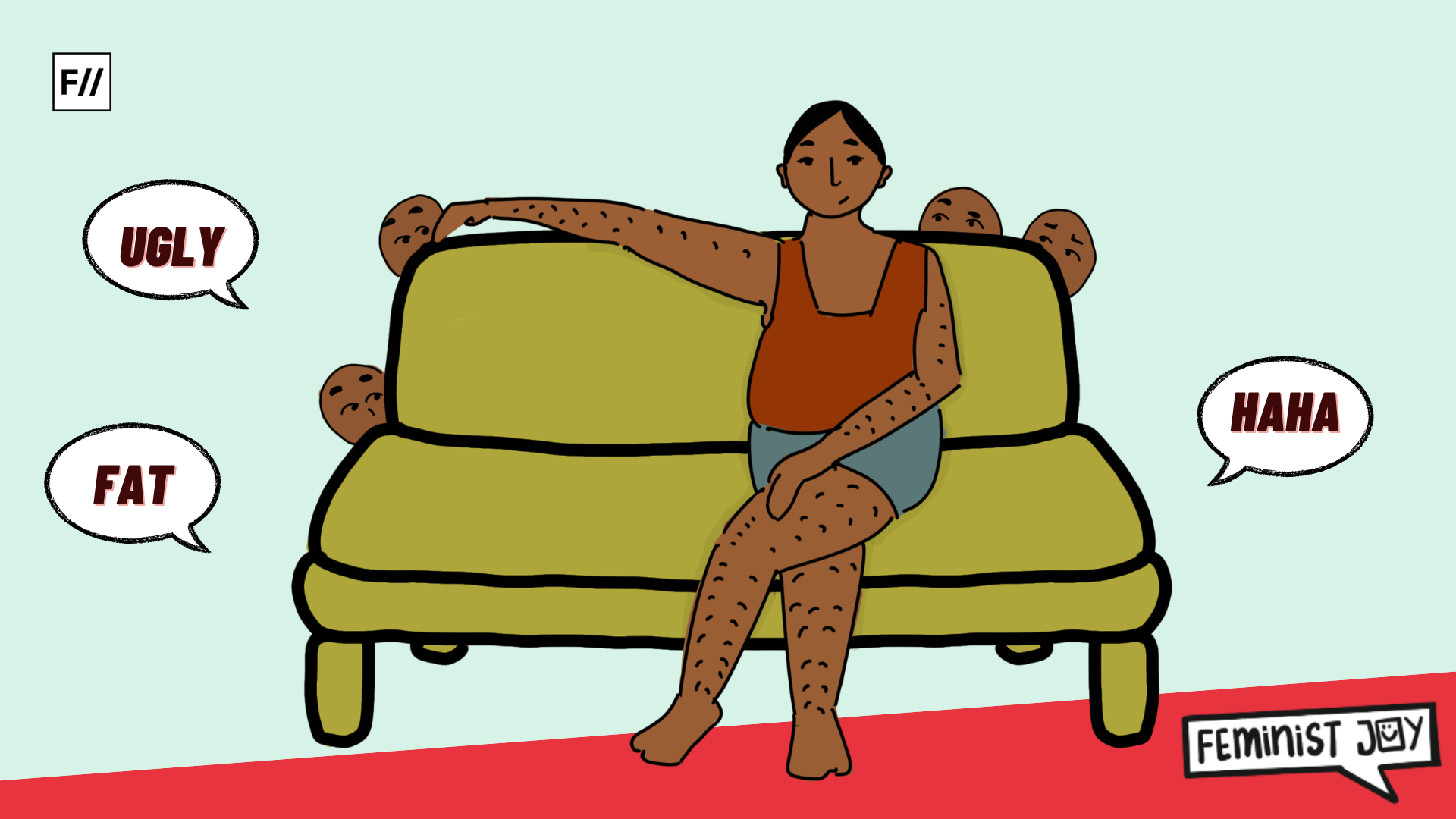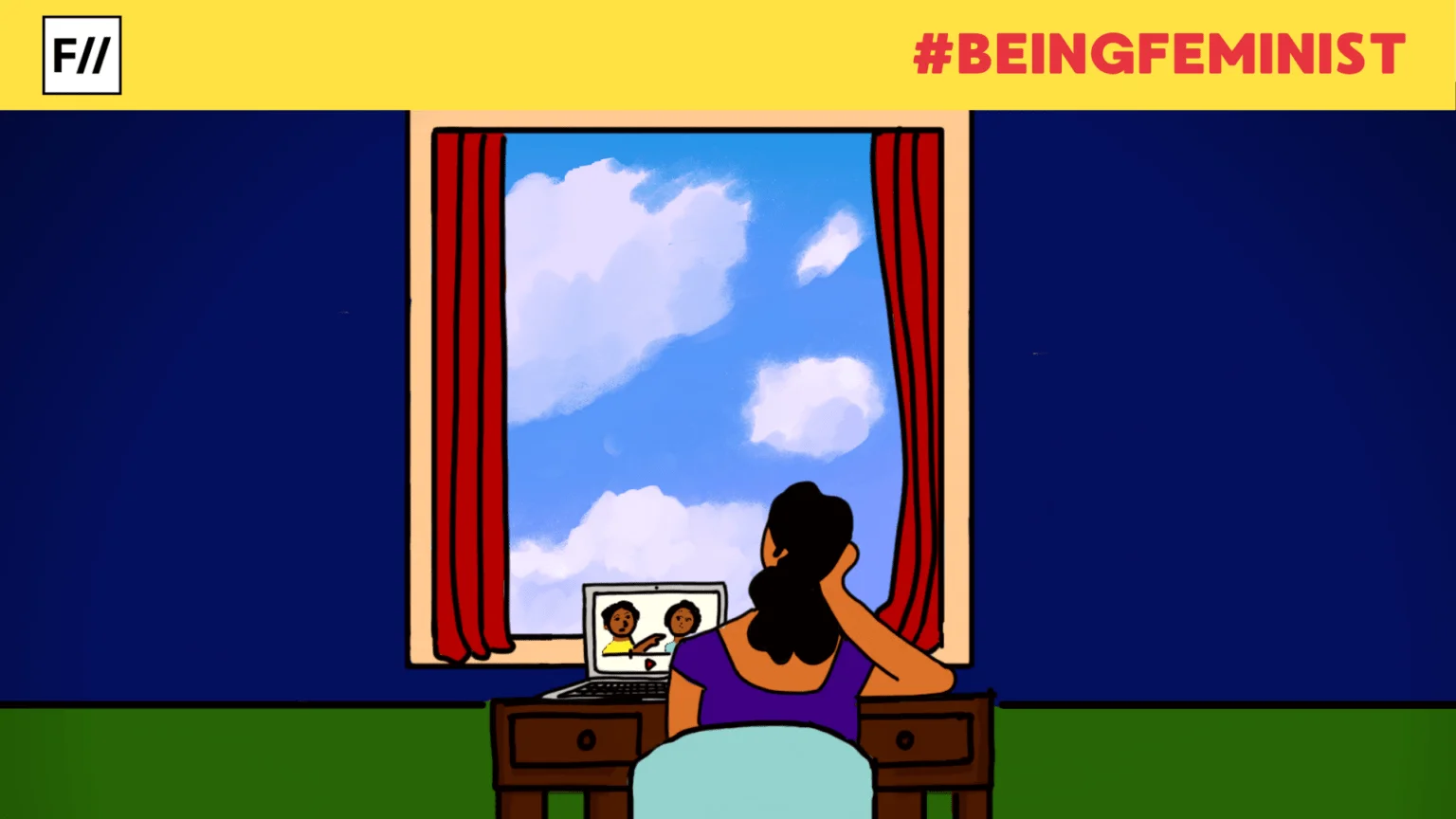At the age of eight, dresses became scarce in my cupboard. In an assertion of individuality, I began to demand more pants, t-shirts and shorts. At nine, my long hair was cut to 3/4ths of its length. My mother, sitting beside me and reading a magazine, wept silently. This period marked the beginning of the label ‘tomboy’ being used to describe me. The Online Etymology Dictionary defines a tomboy as a “wild, romping girl, who acts like a spirited boy”.
My parents rushed to assure all our relatives that it was “just a phase”. That I would grow out of it and everything would go back to normal. At social gatherings, my growing Barbie doll collection was emphasised as an implication of me being like any other girl my age.
My classmates in school began to question why I was not more like them. While they showed off their new Disney Princess bag packs, mine usually had Ninja Turtles, Scooby Doo, or SpongeBob on it. Their favourite colour was pink, mine was blue, but “ew…why? blue is such a boy’s colour”. Let’s not forget we were all conditioned to think in the blue versus pink binary.
My parents rushed to assure all our relatives that it was “just a phase”.
As children, we believed that the differences between boys and girls with reference to preferences and behaviours were endowed in the womb, and this belief was only reinforced by our environment. At school, the bullying continued. At home, the wait for the end of the “phase” continued.
Spoiler Alert: the phase was not really a phase. More traits began to solidify my identity as a tomboy as I grew up, particularly in the eyes of the people around me.
Admittedly, it is more comfortable for me to sit with my legs spread. This preferred position has led to multiple reproaches, the most common one being “cross your legs and sit like a girl”! I have been told off countless times for talking too loudly or the snort in my laugh because it is not becoming of a young lady. The feeling of shame for not acting like a girl pervaded most of my childhood and adolescence.
I operated within the normative gender binary for years, berating myself for being more like a boy and disappointing my family. My frantic search for space where I could exist without judgement led me to discover Tumblr. It was in this world of fandoms, queer ships, and reblogging that I began to tentatively understand the complexities of gender and sexuality.
Also Read: How Women Characters Are Transformed In Bollywood To Deserve ‘Love’
At 17, I came out of the closet to my mother. Nervous and jittery, I waited for an onslaught of bitterness that never came. The response was a kind and accepting smile. Her reaction should not have surprised me though, she was the first person to realise that my affinity for certain types of clothing was as much a part of me as my hatred for peas.
The quote “one is not born, but rather, becomes a woman” by Simone de Beauvoir, was the first time I encountered the idea that acting like a girl or a boy did not arise from a natural instinct. Classes on gender theory taught me that notions of femininity and masculinity, constructed in terms of attitudes and behaviours had little to no correlation with biology, rather these notions were purely social.
Through theorists such as Simone de Beauvoir and Judith Butler, I realised that the way I choose to express myself with clothing, or how I talk, or my laughter was codified as unfeminine by society. It was freeing to find out that the perceived incongruity between my sex as female and my individual expression of said female-ness was not incongruous at all.
Surrounded by ‘woke’ people at university, I made the decision to make my sexuality known in a classroom full of my peers during a speech about myself. My reveal was received positively and I was patted on the back for my courage and bravery. However, I was also commonly asked if I identified as non-binary or trans as well.
I have been told off countless times for talking too loudly or the snort in my laugh because it is not becoming of a young lady.
When confronted with an assurance in my gender identity as a woman, the follow-up questions would usually be “Well then why don’t you like to dress up or wear make-up? Why don’t you want to remove those three hairs between your eyebrows? It’ll really clear up your face you know”. My answer is always that I do not choose to assert my gender identity in traditional ways, which causes most people to furrow their brow in confusion and drop the conversation.
I know of people who will fervently defend the concept of gender as a spectrum but tell me that their life’s purpose is to see me in a dress at a party. My only response is to show them the pair of pants and the shirt that I have chosen for the occasion instead. So, in an era of growing conversations about gender, gender identity, and alternative sexualities – why does a woman like me, who chooses to fill her closet with large t-shirts and jeans, and likes to sit with her legs spread, create such confusion?
I have searched for the answer to this question through multiple avenues – from books to scholarly works to cinema. The only one I have been able to come up with is that we still lean heavily on stereotypes informed by the gender binary. While we may theoretically understand the social nature of gender and the myriad ways in which gender identity may be expressed, many continue to expect those who identify as woman or man to act in accordance with the gender spectrum.
Also Read: My Quest For Authenticity: Coming To Terms With Being Non-Binary
Featured Image Credit: Cinefilos
About the author(s)
Currently in between semi and full adulthood. Writing helps me work out all the complex thoughts I have floating around in my brain.





Thanks for your story. As as heterosexual cis woman who has never cared much about gender norms, I’ve come across such comments all my life. Most times it’s meant as an insult, and sometimes as a compliment (for ‘not being like other women’). Beauty/dressing up is still considered the most important part of a woman’s identity, even by many “empowered/independent” women. And if you don’t fulfil this role, people start asking questions about your gender identity and sexuality (Ridiculous!! And none of their business!).
Your story is so similar to mine ( I mean like literally every part) I feel like I wrote it. Thank you so much.